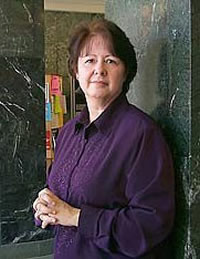The holiday season’s upon us, whether or not we’re ready. Amid the hustle and bustle, however, music lovers can find plenty of attractive diversions. This year, it would appear that Amahl and the Night Visitors is matching Messiah in popularity. Over the weekend of December 5, Long Leaf Opera and NCCU’s Department of Theatre gave the Triangle three performances of Menotti’s endearing – and enduring – classic, and as of this writing there are at least six more in various Tar Heel cities before Old Christmas.
In his welcoming remarks before the December 6 performance, in NCCU’s University Theatre, LLO Artistic Director Randolph Umberger (who also designed the costumes) noted that Menotti has created a truly memorable work, one that contains some of the finest music ever written – he cited the score’s marvelous quartet as an example. Those of us of a certain age recall its frequent telecasts, on NBC, and some of us received recordings, featuring the original cast, as holiday presents. Frequent productions and those records and those telecasts mean that the work is among the best-known operas in the long history of the genre, and that is at once a blessing and a curse for those who tackle it. Still, the score seems to be as resilient as Handel’s magnum opus, and – like the big bits of the oratorio – the opera rarely fails to work its magic on those who see and hear it.
At NCCU, LLO’s production featured veterans of the company’s previous performances – Denise Payton, as the Mother, and Carl Johnson, Robert Weston Williams, and Henry S. Gibbons as the Three Kings, Kaspar, Melchior, and Balthazar. Josh King was last year’s understudy as Amahl, and he sang it once, then; he portrayed the title character on December 6 and at the Sunday matinee performance, too. Also new was Shiangtai Tuan, as the Page. He doesn’t have much to sing, but the venerable singing actor, known to many music lovers for his frequent appearances on area stages, came close to stealing the show from his colleagues with obsequious carryings-on. Music Director Benjamin Keaton led the reduced orchestra, which included four strings, a quartet of woodwinds, and an electric piano and percussion. The latter flanked the stage, somewhat removed from the rest of the band; this caused some problems with balance from time to time, but the small audience seemed caught up in the stage business, so in the wash it was probably no big deal. The instrumental playing was generally secure, although occasionally we were reminded of the fact that there’s safety in numbers: when the accompaniments dwindled to just a few instruments, there were some uneven patches. The substantial chorus sang with enthusiasm and considerable polish. The single set was handsome, handsomely lit and highly effective. And Umberger’s costumes were among the finest we’ve seen in regional productions.
The singing by the veterans was consistently outstanding. Gibbons is tall and stately in bearing, so he was a convincing king. Johnson milked the amusing part of Kaspar for all it is worth and never failed to make the crucial points as the work unfolded. Williams was generally magnificent. All projected admirably, but for Williams, at the very end, when some words didn’t hammer home; this is an example of the “curse” side of overly familiar works! Peyton was a commanding presence as the Mother. She’s a larger-than-life figure, and her voice, richly shaded and modulated, is ideal for the part. The Amahl had some difficulty with pitches here and there – in many passages, Menotti provides scanty instrumental support for this part – and the youngster sometimes unsteady, but his major contributions to the evening were dramatically effective.
There are, I think, few operas that contain such a magical section as Amahl , in the scene where the crippled boy offers up his crutch to the Kings, for the Child they are seeking; at the risk of a bad pun, it results in an “instant TV cure,” after which Amahl is able to walk and run and dance and then decides to accompany the Kings to Bethlehem. Umberger introduced a new touch in this run, having Kaspar put some of the gold (intended for the Child) under the Mother’s pillow; after Amahl and the Kings have left, she finds it and gives thanks once more. The opera ends as it began, with the shepherd boy’s plaintive reed-flute melody. Amahl takes about an hour to perform, and those who saw and heard it in Durham were surely as enchanted as we were. Readers who missed it may check our Triangle and Western calendars for details of other productions coming up.











